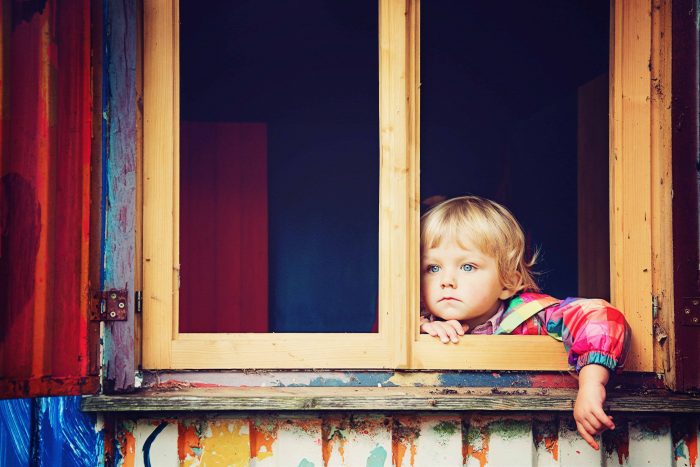

In 1851, in Massachusetts, adoption was recognized as a legal operation for the first time. In 2000, the Child Citizenship Act 2000 gave foreign adoptees American citizenship upon entrance in the United States. Today, after almost 160 years, adoption is a fundamental American institution that gives more than 135,000 children per year the chance to a loving home. Whether it’s because they can’t become biological parents themselves or because they want to give a child in the foster system a better future, one in 25 American families decide to adopt. However, the journey of raising an adopted child can be much more stressful and confusing than the bureaucratic adoption procedure and not few are the parents who raise their children based on myths that fuel insecurity and contempt.
Every adoption story is different and every family has its own dynamic. Adoptive parents have the same little joys and fears as biological parents and feel the same need to nurture, which is precisely why so many myths surrounding the upbringing of an adopted child stem from the fear of hurting them.
Myth: You are the hero in your child’s life
Many times, parents who welcome a foster child into their homes are seen as noble and selfless and we have the cult of the Hollywood star to thank for that. Celebrities who have adopted children from impoverished or war-torn regions are seen as these god-like saviors by the media and, although the act of adoption can be imbued with generosity, instilling this mindset in your child’s upbringing can be tremendously toxic. The reality of adoption is that for the child, you’re not automatically a hero. Their love and respect must be earned. According to April Dinwoodie, CEO of an adoption institute, parents and other family members who suggest that biological parents are the villains and adoptive parents are the heroes actually hinder the child’s emotional development, making them feel that they were given away because there was something wrong with them and the adoptive parents picked them like goods in a shop. Psychologists say that adoptive parents should refrain from painting a negative picture of their child’s biological parents and explain that they are good people who have faced certain problems and taken bad decisions.
Myth: Communication with the biological family is impossible
When adopting a child, many couples believe that he or she will lose all contact with their biological family and keeping them separated is the right thing to do. In reality, things are completely the opposite: the search for the biological parents is part of discovering one’s identity and if your child suggests that they want this, you shouldn’t try to suppress this thought. In fact, most adoptions in the U.S. are open or semi-open and many mothers who send their kids to foster homes want to maintain a line of communication after adoption. There are even cases of adoptees, even intercountry adoptions, who stay in touch with their biological parents even if they have drug problems or are convicted. The fact that your adopted child still keeps in touch with their biological mother or father doesn’t mean that they will also be raised by them and you should not feel threated or jealous, because this is actually healthier. You are the Mom or the Dad, the one helping them do their homeowner, driving them to school, reading them bedtime stories and making them breakfast; they will not confuse you with the biological parent.
Not knowing who their biological parents are can also have negative repercussions on the child’s emotional development, so, if they want, you can submit an inquiry at the foster home or do a people search to find out where they live. Adoptees have to decide for themselves whether or not they want to communicate with their biological parents, this decision shouldn’t be forced on them.
Myth: An adopted child is like any other child
When trying to understand the needs of your adopted child, it’s essential not to fall into extremes. On the one hand, there are parents who see their adoptive children as these incredibly frail beings who need overprotection or worse, as broken personalities beyond repair. The Dave Thomas Foundation for Adoption explains that children in foster homes didn’t end up there because there was something fundamentally wrong with them, but because their families could not offer them the home they deserved. On the other hand, they are not like any other child either. An adoptee is likely to have insecurities, trust issues, abandonment issues or even traumas – and it’s important to address them. Offering them all your love and care is the first step, but it might not always be enough and experts recommend child therapy sessions.
Myth: Children should be told they’re adopted when they’re older
Whenever adopted children are pictured in movies or popular culture, they always find out they’re adopted through a dramatic reveal that leads to a massive argument and a rift in the family. It’s one of the longest standing myths about adoption and, according to experts, the most dangerous one. Adopted children should learn that they’re adopted as early as possible, not told when they are older. They might not understand what this means when they are little, but, in time, they will. Adoptees have the right to know their past and understand their roots. Not only will you not hurt their feelings if you’re completely transparent, quite the contrary, they will trust you even more and they will not feel resentment towards you.
If you’re a new adoptive parent or plan on being one, don’t listen to word of mouth. Arm yourself with legitimate information and trust only reliable advice from approved sources:
Browse Front PageShare Your IdeaComments
Read Elephant’s Best Articles of the Week here.
Readers voted with your hearts, comments, views, and shares:
Click here to see which Writers & Issues Won.









The myths and realities of raising an adopted child good post thanks for sharing this information Helpful